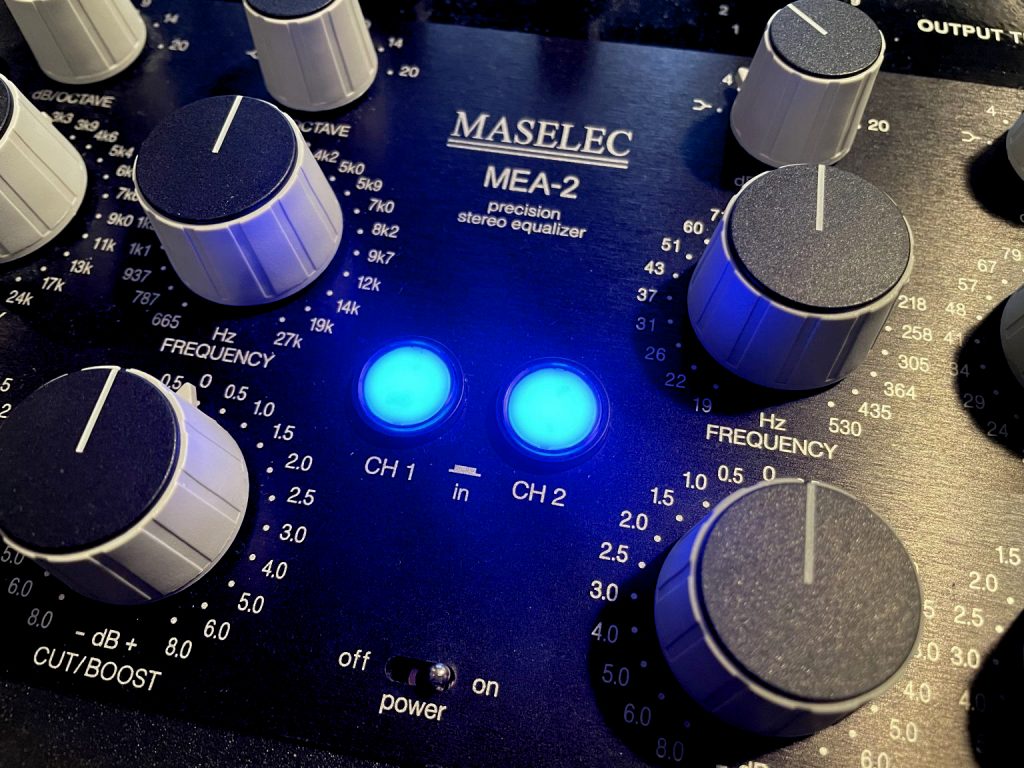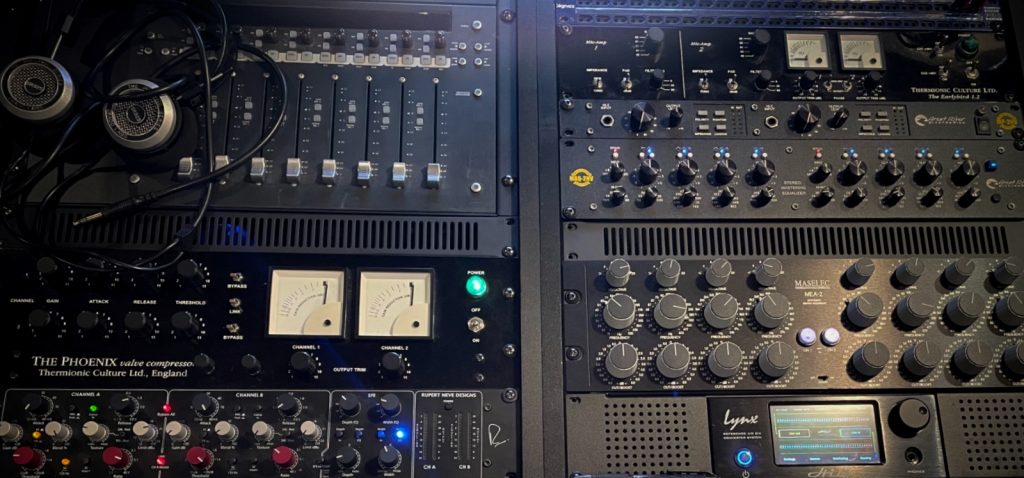What is mastering?
Mastering is the last stage of the production process where your mixes can be enhanced and/or repaired and compiled ready to be distributed, either on physical media or by streaming and downloads.
Depending on the mixes this can involve a lot of manipulation of the audio, or very little. Either way, you can be confident after mastering that you mixes will sound as good as they possibly can when they reach your listeners.
Mastering engineer Ian Shepherd has a nice analogy; if mixing is like painting a picture then mastering is presenting the pictures and curating the gallery. Ensuring that each picture is lit consistently and is displayed with the right amount of space around it in an order that they makes sense together.
In order to achieve this consistency between the tracks on an album/EP, and with other similar music that is out there the mastering engineer is likely to:
- Equalise the tracks.
- Apply dynamic processing – compression and limiting.
- Balance the stereo image of the mixes.
- Harmonically enhance to the tracks.
- Set the gaps between the tracks.


Can't I master my own tracks?
Of course you can! But, it might not be a great idea as the job of a mastering engineer is to be objective, which is difficult if you have already spent many hours mixing a track.
Problems in mixes can often be caused by problems with the acoustics in the mix room. Mastering on the same system will mean these problems don’t show up. This is why is it important for the mixes to be mastered in an acoustically controlled room by another “set of ears”.
What do I need to provide for my tracks to be mastered?
Please provide us with the mixes at the same quality as your mixes session. For instance, if you DAW is set to 32-bit, 96kHz, please send us the mixes at this quality.
Please leave a few seconds of silence on the start and end of you bounce.
If you have a peak limiter on your mix please remove this before bouncing the mixes. This will allow us headroom and flexibility to work with your tracks. Ideally your mixes should be peaking at no higher than -6dBFS. Speak to us if you aren’t sure!
Please tell us the track order you want the songs to appear in.
If you would like any meta-data embedded on the CD or in the files please send us this. The most important is normally the IRSC codes. Please send track information such as title, artist name etc, etc, so we can ensure it is accurate in the mastered files.
You are welcome to send us a couple of reference tracks that you like the sound of so that we can have a clearer idea of the sound that you are aiming for.
Can you listen to my unfinished mixes?
We are very happy to listen to your almost finished mixes before you send them for mastering. Some problems that are difficult to fix in mastering are easy to fix in mixing so making small alterations to the mixes can be beneficial.
We just ask that you pay a deposit of 30% of the fee before we spend time on your tracks to ensure that we can devote the time required to listen to them properly.
After the mastering session...
When we have mastered your tracks we will send you the masters for your approval. You should spend some time listening to them to ensure that you are happy.
If you would like any changes to be made then speak to us and we will revise the masters and send a new version. It is important to us that you are happy with the sound of your masters. One set of revisions is included in the price of the mastering.
When you have approved the masters we will send a final bill and, on payment, the masters will be sent to you in all the formats that you require.
